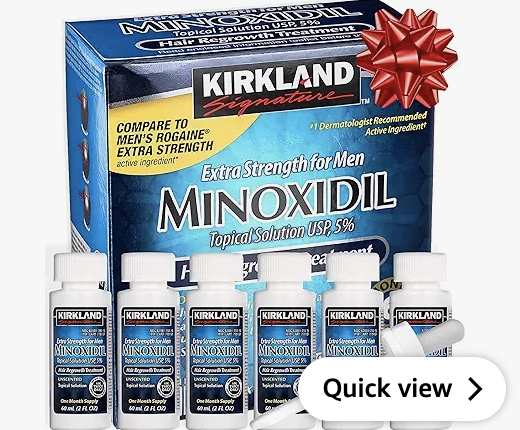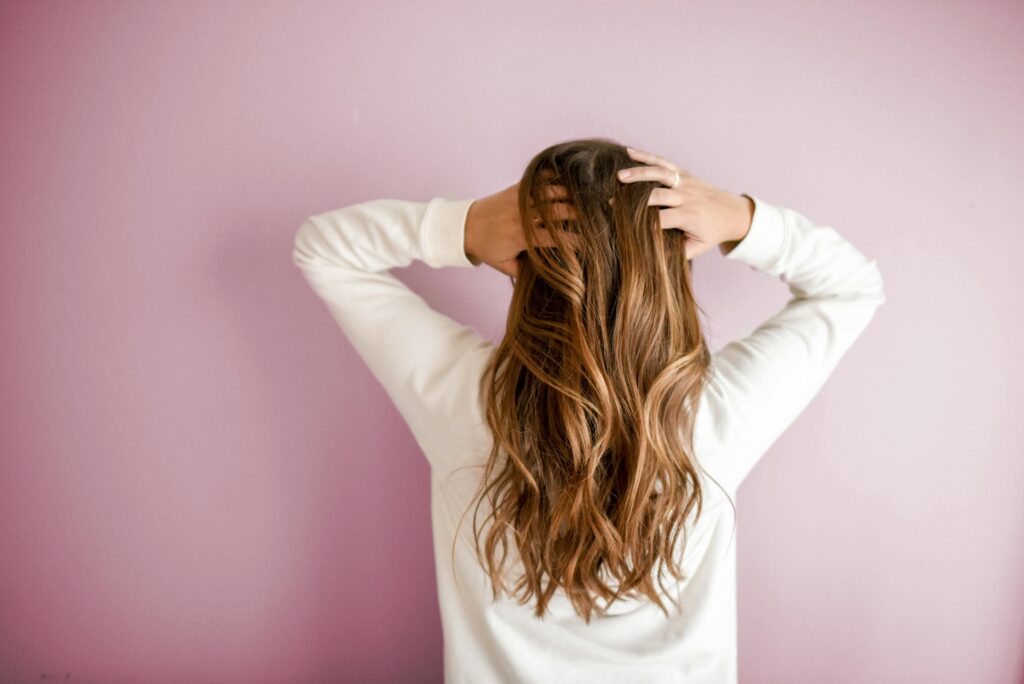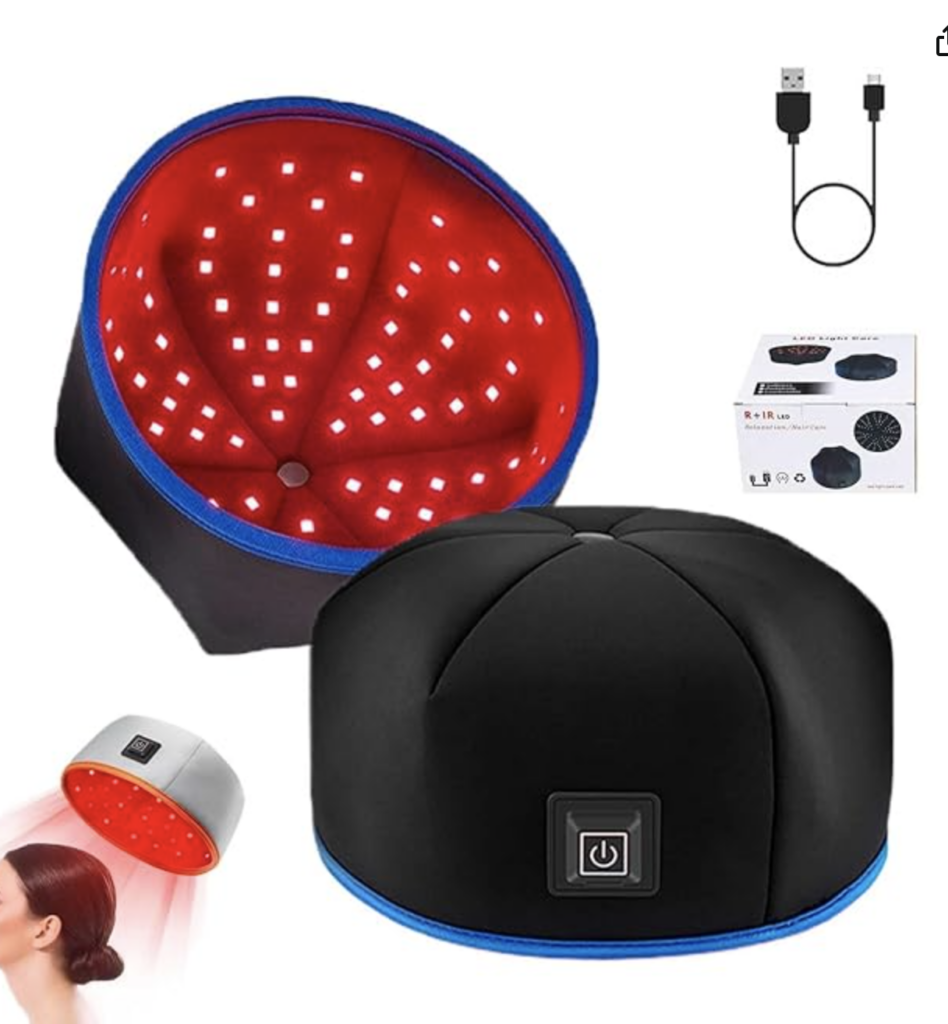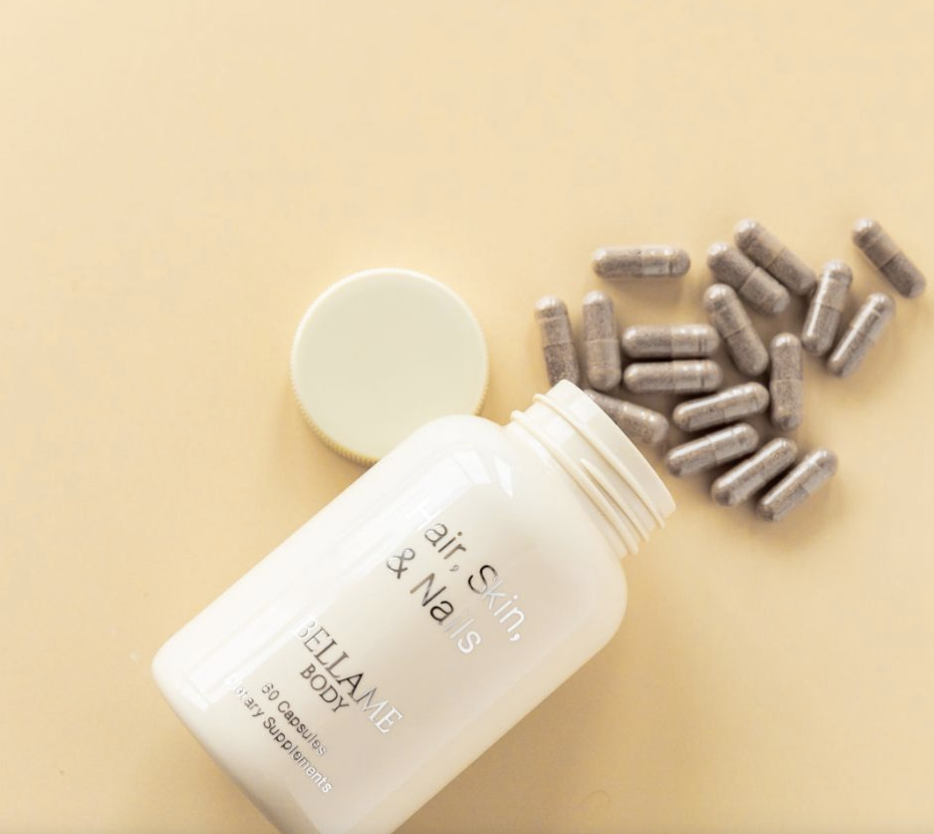Understanding & Addressing Hair Loss (or Thinning) in Menopause


Understanding and Addressing Hair Loss During Menopause
Hair loss can be a distressing symptom of menopause (and even perimenopause, impacting not just physical appearance but also emotional well-being. As many as 40% of women experience hair thinning during menopause due to hormonal changes, primarily the decrease in estrogen and progesterone levels, which can affect hair growth and health.
Why Does Menopause Affect Hair?
During menopause, the body experiences a significant reduction in estrogen and progesterone. These hormones help hair grow faster and stay on the head longer before shedding. When their levels drop, hair grows more slowly and becomes thinner. Additionally, the increase in androgens (male hormones) can lead to hair follicles shrinking, resulting in hair loss.
Solutions for Menopausal Hair Loss
Microneedling: A Quick Treatment to REGROW HAIR
Microneedling without PRP: Microneedling for hair growth uses fine needles to create tiny punctures in the scalp. These micro-injuries stimulate the skin’s natural healing process, boosting blood flow and encouraging the production of growth factors that support hair follicle health. This treatment can improve hair thickness, reduce hair loss, and promote healthier, more robust hair growth.
Microneedling with PRP: Microneedling with PRP for hair growth combines the benefits of standard microneedling with the powerful effects of Platelet-Rich Plasma (PRP). After drawing and processing your blood, the PRP, rich in growth factors, is applied to the scalp during microneedling. This potent combination enhances healing, stimulates hair follicles, and accelerates hair regrowth, leading to thicker, stronger, and healthier hair.
While menopausal hair loss can be challenging, there are several effective treatments available on Amazon.com and other retailers to help manage this condition:
- Minoxidil (Rogaine): This topical medication is FDA-approved for female pattern baldness and can be applied directly to the scalp to stimulate hair growth. It’s one of the most popular treatments for hair thinning during menopause. Do not waste your money on the version for women, get the full strength for men.
- Rosemary Oil: Known for its natural healing properties, rosemary oil can also promote hair growth. It improves blood circulation to the scalp, which can stimulate the hair follicles and enhance hair growth. Integrating rosemary oil into your daily routine by massaging it into the scalp can be a natural way to combat hair thinning.
- Hair Supplements: Supplements containing vitamins and minerals essential for hair health can also help. Look for products with biotin, vitamin C, vitamin D, iron, and zinc, which support hair strength and growth. These nutrients can help compensate for the nutritional deficits sometimes exacerbated by menopausal changes.
- Red Light Therapy Hats: These wearable devices use low-level red light therapy to stimulate the scalp and encourage hair growth. This non-invasive treatment has shown promising results in enhancing hair density and health. There are a wide variety of hat styles ranging in price from $60-$600.
Recommended Products
To support your journey in managing menopausal hair loss, here are some product recommendations:
- Hair Supplements: Hair, Skin & Nails are specifically formulated for women with hair loss/thinning.
- Rosemary Oil: Organic Rosemary Essential Oil for hair growth and thickness.
- Red Light Therapy Hat: Theradome PRO LH80 for at-home hair regrowth treatment.
- Red Light Therapy Beanie: Red Light Therapy Beanie for hair and scalp health.
The Wrap Up…
Menopausal hair loss can be unsettling, but with the right approach, it’s manageable. Whether you opt for medicinal treatments like Minoxidil, natural remedies like rosemary oil, nutritional supplements, or innovative technologies like red light therapy hats, there are numerous ways to help maintain your hair’s health during menopause. Remember, it’s important to consult with a healthcare provider before starting any new treatment to ensure it’s appropriate for your health needs. Together, you can create a tailored approach that best suits your body’s changes and keeps your hair looking its best.



Be the first to comment